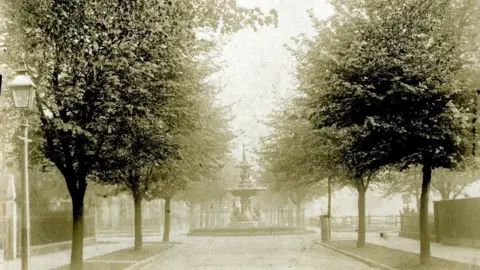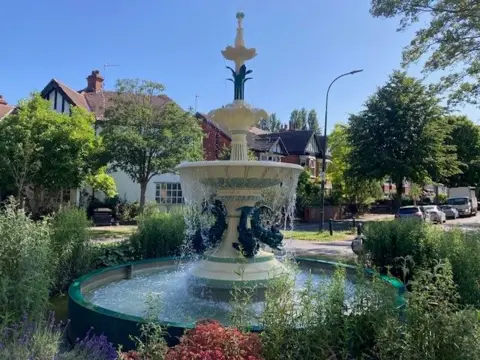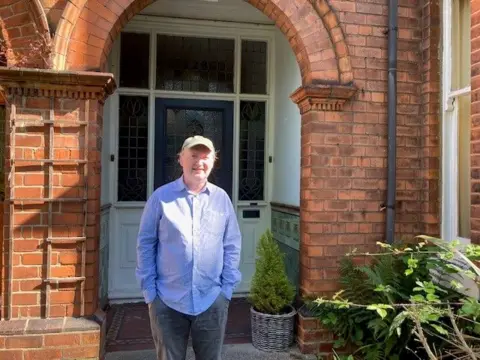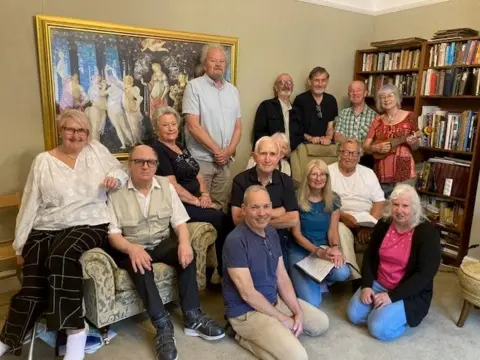Play celebrates 150 years of The Avenues
 Carnegie Heritage Centre
Carnegie Heritage CentreA play is to be performed to mark the 150th anniversary of The Avenues area of Hull.
Developer David Parkinson Garbutt established the estate in 1875 as a residential area for the burgeoning middle classes of the city.
High Windows, written by Barrie Wheatley, charts the area's history and is named after a poem by Phillip Larkin who lived at nearby Pearson Park.
The play is being performed by the over 50s group from Northern Academy of Performing Arts in Hull at The Avenues Centre on Sunday afternoon.
 BBC / Sally Fairfax
BBC / Sally FairfaxKnown for its tree-lined roads, high Victorian buildings and ornate fountains, The Avenues was originally envisioned as an extension of Pearson Park.
Garbutt was a promoter of the temperance movement so it is ironic that a bar on Princes Avenue is named after him.
Stephen Ingram, who lives in the area, said: "Garbutt set out the four avenues, Westbourne, Marlborough, Park and Victoria, and had the drainage system built too so that it was ready for builders to buy up plots and build these big houses.
"He also bought 1,000 trees and six fountains to give The Avenues the feel of Parisian boulevards."
 BBC / Sally Fairfax
BBC / Sally FairfaxOnly three of those fountains remain and just one, on Victoria Avenue, is in working order.
A replica was recently built there, paid for by local residents, which gushes water around the ornately decorated sculptures of mermaids and fish.
Around the corner from the fountain is the Avenues Centre on Park Avenue.
The building is almost as old as The Avenues and opened in 1888 as an industrial school for girls.
From 1919 it was used for other educational purposes and is currently an adult education centre.
It is there that Mr Wheatley's play will be performed this weekend.
 BBC / Sally Fairfax
BBC / Sally Fairfax"It takes the audience through the history of an Avenues house from 1875, when the residents were very posh people like bankers or shipping merchants," Mr Wheatley said.
"They wanted the servants accommodation and the coach houses that the grand houses offered."
"Looking at the green, tree-lined streets now, it is easy to imagine people promenading them 150 years ago," Mr Wheatley added.
"The layout itself and the exterior of the buildings hasn't changed. Many of them have the same fixtures inside."
High Windows is at The Avenues Centre on Park Avenue at 14:00 and 16:00 BST on Sunday 6 July. Admission is free.
Listen to highlights from Hull and East Yorkshire on BBC Sounds, watch the latest episode of Look North or tell us about a story you think we should be covering here.
